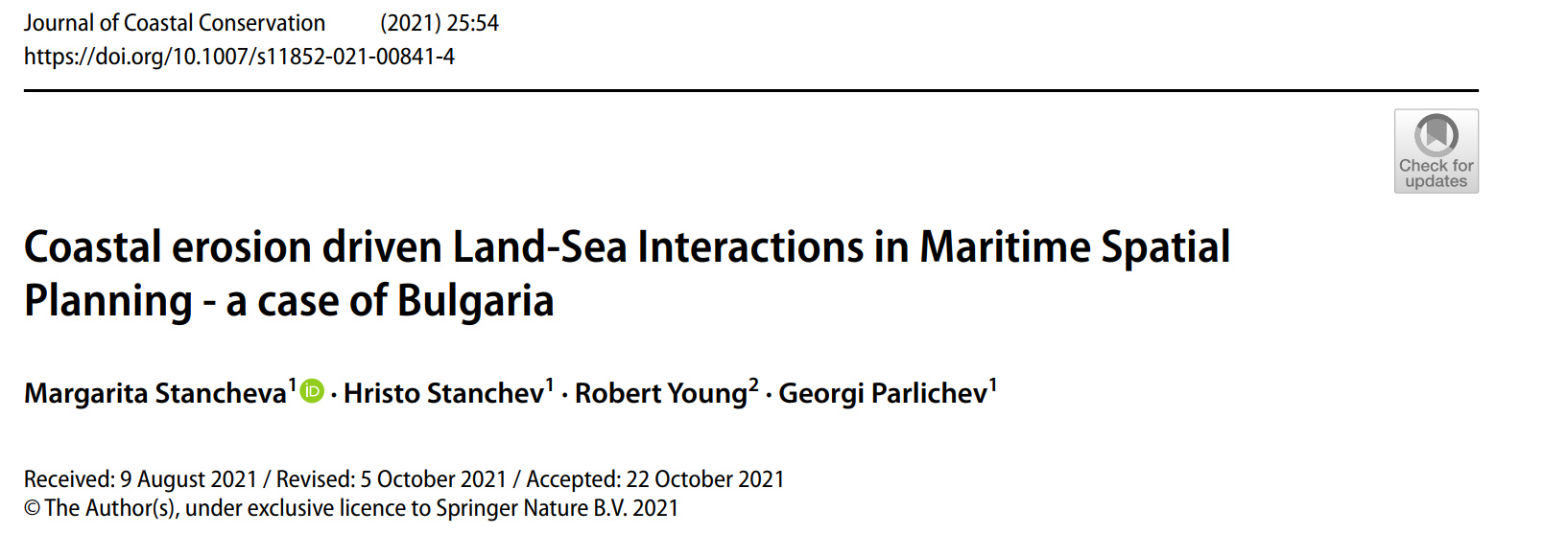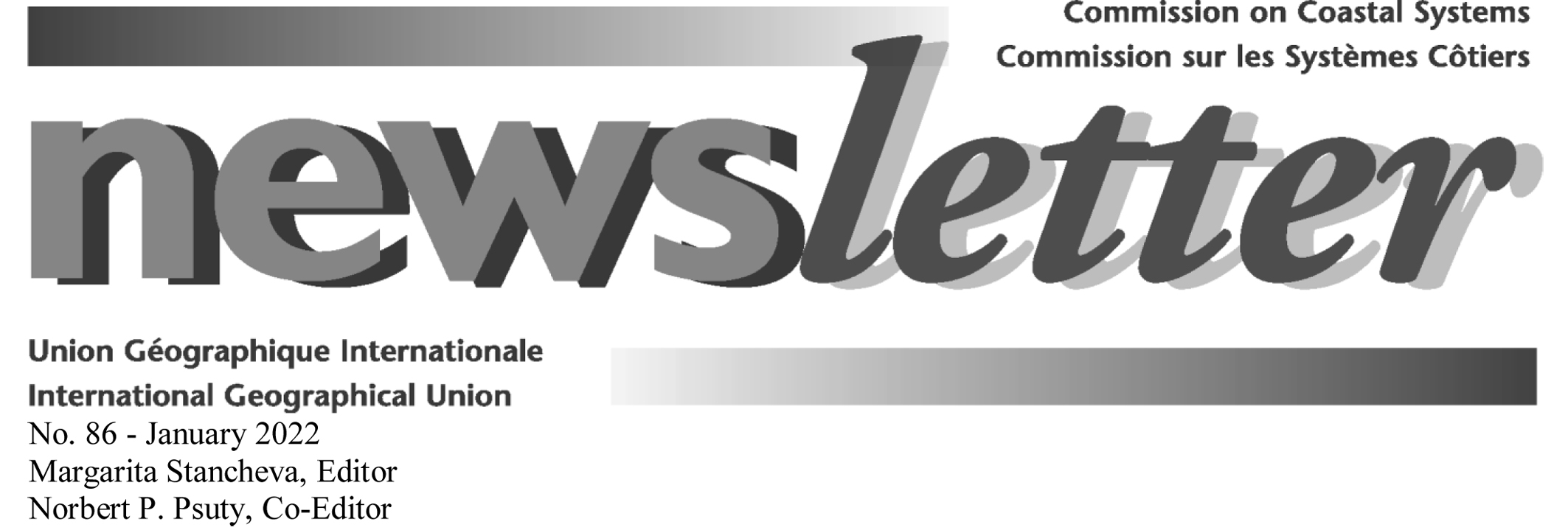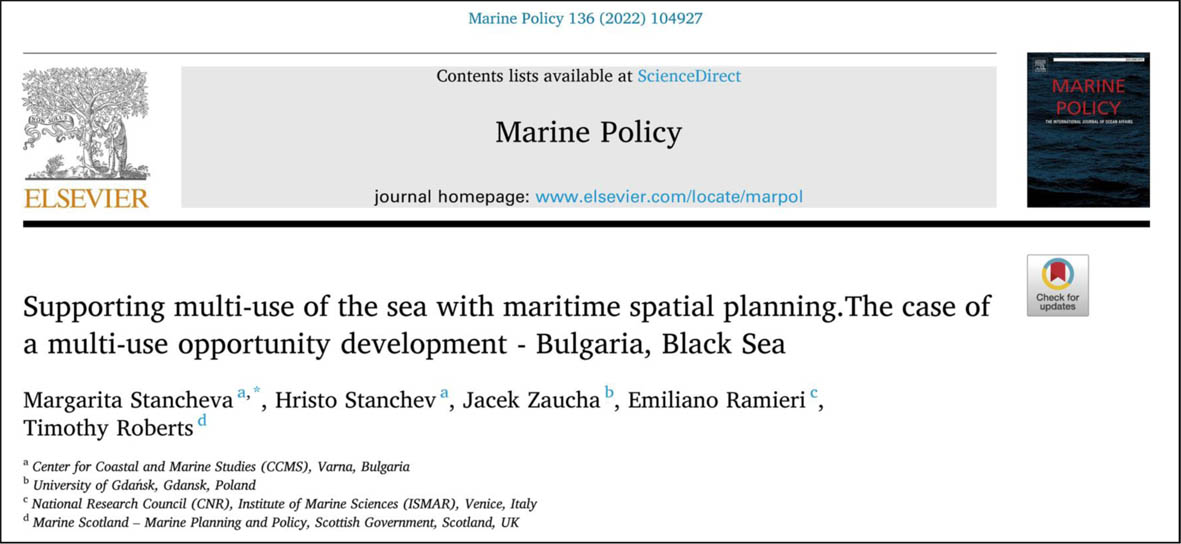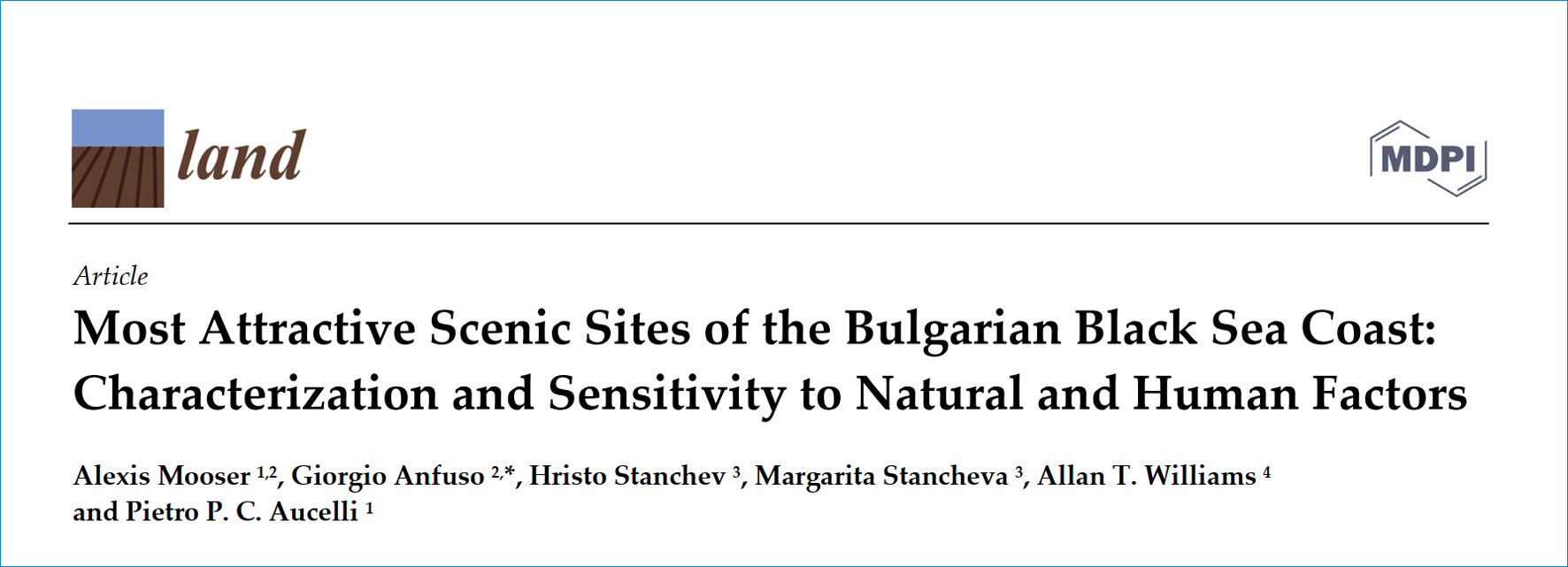News and Events
CCS January 2022 Newsletter published and ready for read!
The Commission on Coastal Systems (CCS) to the International Geographical Union (IGU) is delighted to release its January 2022 Newsletter: you can discover the latest news, CCS recent and upcoming activities, initiatives and collaborations by following CCS website: http://igu-coast.org/.
The CCS Newsletter is issued twice a year and highlights the activities of the Commission on Coastal Systems and its members all across the world. If you would like to join CCS network, you only need to fill out the form at the end of the Newsletter or to get in contact with CCS!
Enjoy the content of CCS January 2022 Newsletter and participate by sharing information and disseminating it to your wide networks and interested readers.
Commission on Coastal Systems, International Geographical Union.
NEW MSP RESEARCH PAPER IS NOW AVAILABLE ONLINE: SUPPORTING MULTI-USE OF THE SEA WITH MARITIME SPATIAL PLANNING. THE CASE OF A MULTI-USE OPPORTUNITY DEVELOPMENT - BULGARIA, BLACK SEA.
We are happy to announce, that the Center for Coastal and Marine Studies (CCMS) in collaboration with:
• University of Gdansk, Poland
• National Research Council (CNR), Institute of Marine Sciences (ISMAR), Venice, Italy
• Marine Scotland - Marine Planning and Policy, Scottish Government, Scotland, UK
has published a joint peer reviewed research paper in Marine Policy Journal (Elsevier): Supporting multi-use of the sea with Maritime Spatial Planning. The case of a multi-use opportunity development - Bulgaria, Black Sea.
With expanding human uses of sea space, the role of marine/maritime spatial planning (MSP) in supporting their sustainable co-existence and synergies, while preserving marine ecosystems, becomes an increasingly challenging task. To address the sustainable exploitation of sea resources, and the optimal use of sea space, the concept of Multi-Use (MU) has been introduced. Despite international examples of successfully applied multi-uses, this concept is still new for Bulgaria, its decision-makers, spatial planners and stakeholders.
CCMS team has had a joint peer-reviewed research paper published in the MDPI Land open-access scientific journal!
We are pleased to promote our most recent peer-reviewed research paper: Most Attractive Scenic Sites of the Bulgarian Black Sea Coast: Characterization and Sensitivity to Natural and Human Factors. The article has been published in the MDPI Land open-access journal, Special Issue: Land Modifications and Impacts on Coastal Areas in collaboration with:
• Department of Science and Technology (DiST), Parthenope University, Naples, Italy;
• Faculty of Marine and Environmental Sciences, University of Cádiz, Spain; and
• Department of Architecture, Computing and Engineering, University of Wales, Swansea, UK
Bulgaria has impressive scenic diversity and uniqueness, presenting real challenges and opportunities as an emerging tourist destination in terms of sustainable development. However, such as most developing countries, Bulgaria tend to ignore mistakes made previously by developed ones. In this paper, scenic beauty at 16 coastal sites was field-tested by using a well-known methodology, i.e., the Coastal Scenic Evaluation System (CSES), which enables the calculation of an Evaluation Index “D” based on 26 physical and human parameters, utilizing fuzzy logic matrices. An assessment was made of these high-quality sites located in Burgas (8), Varna (3) and Dobrich (4) provinces.
This is an open access article!
NEW MSP-LSI RESEARCH PAPER HAS BEEN PUBLISHED: COASTAL EROSION DRIVEN LAND-SEA INTERACTIONS IN MARITIME SPATIAL PLANNING - A CASE OF BULGARIA

We are happy to announce, that Center for Coastal and Marine Studies (CCMS) in collaboration with Program for the Study of Developed Shorelines (PSDS), Western Carolina University, Cullowhee, NC, USA has published a new peer reviewed research paper: Coastal erosion driven Land-Sea Interactions in Maritime Spatial Planning - a case of Bulgaria. The article has been published online first in the Journal of Coastal Conservation (Springer Nature), Special Issue: Sustaining coastal and marine environments in the Anthropocene.
The publication has been a result of the MARSPLAN-BS II project collaboration (2019-2021), Cross-border Maritime Spatial Planning for Black Sea - Bulgaria and Romania, funded by the European Maritime and Fisheries Fund of the European Union via European Commission, DG MARE, Agreement number: EASME/ EMFF/2018/1.2.1.5/01/SI2.806725.
CCMS is leading the activity on Land-Sea Interactions. The paper provides a detailed investigation with specific focus on coastal erosion driven Land-Sea Interactions as a case study in the Shabla Municipality, North Bulgarian Black Sea coast, where the highest rates of the cliff erosion occur.



